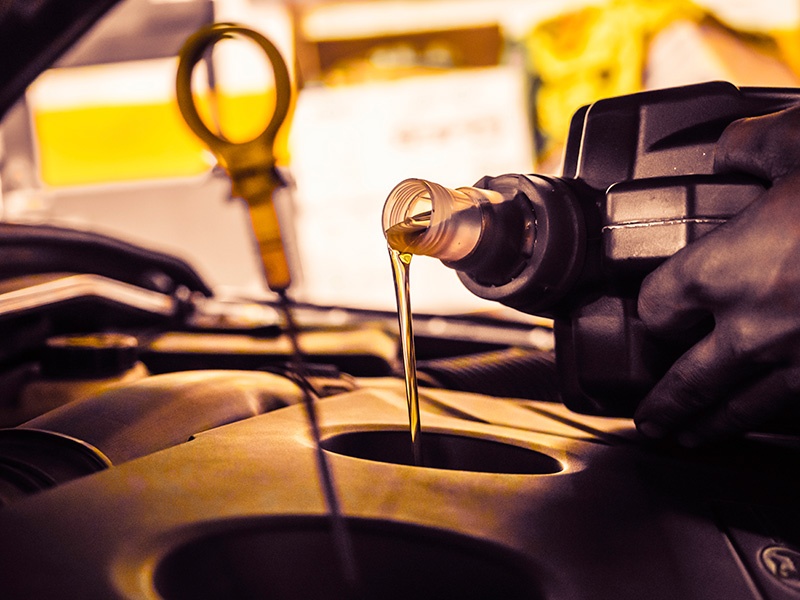New Diesel Engine Oil Standards

 It’s not too early to start thinking ahead to December 1, 2016. Not because it’s both National Pie Day and Bifocals at the Monitor Liberation Day, but because December 1st is when the American Petroleum Institute’s (API) two new diesel engine oil standards—API Service Categories CK-4 and FA-4—will first appear in the API Service Symbol donut.
It’s not too early to start thinking ahead to December 1, 2016. Not because it’s both National Pie Day and Bifocals at the Monitor Liberation Day, but because December 1st is when the American Petroleum Institute’s (API) two new diesel engine oil standards—API Service Categories CK-4 and FA-4—will first appear in the API Service Symbol donut.
Eventually replacing the current CJ-4 oils, the API is now preparing to license engine oil against these new standards. The delay in licensing until December gives marketers time to test their new formulations and have them ready for market.
Why New Standards Now?
Modern diesel engines are running at hotter temperatures and higher pressures and using newer metal technologies. As a result, new industry standards require vehicle and engine improvements that:
- Reduce carbon dioxide and greenhouse gas emissions
- Enhance fuel efficiency
- Maintain engine durability while improving oxidation stability, aeration and shear stability
These improvements require commercial vehicle engine oils with performance capabilities that are beyond those of the current CJ-4 oils.
The API and Engine Oil Standards
Establishing engine oil standards to protect engines, meet new government regulations and ensure engine oil performance is nothing new for the API. They have been doing so since the 1940s. However, it has been around a decade since the last
API diesel oil standard was released.
Protecting engines, compliance with government regulations and engine oil performance were all considered in the development of CK-4 and FA-4, but there is one thing about the introduction of these oils that is different. This is the first time that the API has introduced two categories at the same time, since CF and CF-2 in 1994.
The New Standards and Your Fleet
What do these new diesel engine oil standards mean for your fleet operations? In a nutshell, they mean lower operating expenses with better fuel economy, longer vehicle life with reduced engine wear and tear deposits, reduced maintenance costs and reduced downtime. Or, in an even smaller nutshell, they mean a boost to your bottom line.
To determine which oil is right for your fleet, review the age of your vehicles. If your fleet has both older and newer vehicles, you may want to keep both CK-4 and FA-4 oils on hand until your older vehicles are cycled out of your fleet.
Here are two key points regarding oil recommendations:
- Truck manufacturers that recommend CJ-4 engine oils will most likely recommend that fleet managers start using CK-4 oils as soon as they come to market to better protect today’s diesel engines.
- FA-4 oils protect diesel engines in vehicles that are expected to be on the road sometime in 2016 or 2017. While some manufacturers may recommend FA-4 oils for their previous model year vehicles, it is more likely manufacturers recommending CJ-4 oils today will recommend CK-4 for those vehicles.
A Nitty Gritty Oil Comparison
Similarities:
Both CK-4 and FA-4 Oils:
- Sustain emission control system durability where particulate filters and other advanced aftertreatment systems are used
- Provide enhanced protection against oil oxidation, viscosity loss due to shear and oil aeration and protect against catalyst poisoning, particulate filer blocking, engine wear, piston deposits, degradation of low and high temperature properties and soot related viscosity increase
Differences:
CK-4 Oils:
- Are for high-speed, four-stroke cycle diesel engines designed to meet 2017 model year on-highway and Tier 4 non-road exhaust emission standards and previous model year diesel engines
- Can be used in all applications with diesel fuels ranging in sulfur content up to 500 ppm—note that use with greater than 15 ppm sulfur fuel may impact exhaust aftertreatment system durability and/or oil drain interval
- Exceed the performance criteria of API CJ-4, CI-4 with CI-4 PLUS, CI-4 and CH-4 and can effectively lubricate engines calling for those API service categories
- Consult the engine manufacturer for service interval recommendations if using CK-4 oil with higher than 15 ppm sulfur fuel
- Describes certain XW-30 oils formulated for select high-speed, four-stroke cycle diesel engines designed to meet 2017 model year on-highway greenhouse gas (GHG) emission standards
- Are formulated for use in on-highway applications with diesel sulfur content up to 15 ppm
- Are blended to a high temperature high shear (HTHS) viscosity range to help reduce GHG emissions
- Are not interchangeable or backward compatible with API CK-4, CJ-4, CI-4 with CI-4 PLUS, CI-4 and CH-4 oils—refer to manufacturer recommendations to determine if FA-4 oils are suitable for use
- Not recommended for use with fuels having greater than 15 ppm sulfur